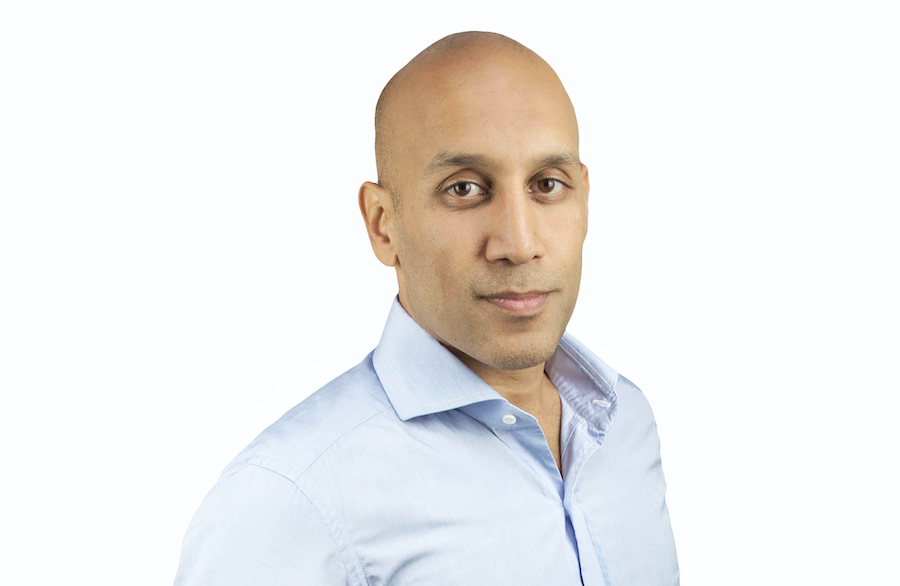Mustafa Koita: Your modern-day milkman

The majority of entrepreneurs work in the corporate world for several years before something triggers their decision to leave and start their own business. For Mustafa Koita, this trigger was a new boss with whom he had a “big falling out”.
So he quit his job as vice president at Boeing, where he had honed his sales skills in the company’s defence and national security department and decided to launch Koita Foods in 2015 in Dubai, which began as a trading and distribution company. Koita quickly pivoted to introduce his own brand of organic long-life milk.
Today, Koita is stocked in 10 countries including Vietnam, the Philippines and Mauritius and is further expanding into Europe in a market traditionally dominated by large conglomerates. Even during the Coronavirus pandemic, the company has managed to grow, particularly in e-commerce, which now account for a third of its sales.
We spoke with Mustafa Koita about his startup’s journey.
How did you go from selling weapons to selling milk?
My family has always had a passion for healthy living and food. I decided to quit, took some pension money and I got into milk because I had relatives in food. I took my life savings and jumped into something I had no experience in. I went to a lot of trade shows and I tried to get an agency from a big milk company, but they said no. When someone tells me no, I always like the challenge, I said fine, I will prove you wrong.
So how did you start?
I did a lot of market research and we interviewed 1000 mothers and had some focus groups. We asked them what they wanted in a milk product. We quickly realised there was only one long-life milk player [in the UAE] offering semi-skimmed milk and no vitamins, so it was a huge opportunity. I went to 23 farms around the world and we honed in on Italy for a number of reasons. Geographically Europe was close, and the quality of the milk and taste profile of Italian milk superseded everyone else’s. I found a company that was family-owned so we signed a contract.
We started with just two SKUs [stock keeping unit], now we have 18 SKUs including plant-based milks in 10 countries. We’re the leading player in certain categories and my competition is multi-million dollar companies.
How did you fund this?
I funded this all on my own. We brought it to market and we had no money whatsoever, but every time we launched an SKU it cost a lot of money – the listing the marketing. It forced us to be very laser focused. I still own 100 per cent of the business, we’re self-funding our growth and have virtually no debt whatsoever and that’s a personal choice.
The traditional thinking is that if you don’t have money, you won’t be able to compete with the big guys – if that is the case then no company would ever start. Our thinking is that we won’t compete in places we can’t, but we will compete where we can.
How did supermarket buyers react to your product?
We had these two beautiful products, the buyers thought they were great, but they asked us “where is your million-dollar marketing budget?”. It was very difficult when we did the initial launch, they had to take something off the shelf that was selling and take a chance on us. I had to use my salesmanship and I was able to get in front of the right people. We sold out every month in the first three months.
Why do you think it was so well received?
What I underestimated was the proprietary research, I didn’t realise how valuable it was. We sent those 1000 mothers an email telling them we’d launched the milk. The mothers felt like it was their product. Right around the time I launched, Instagram influencers were also taking off. We did unique grassroots marketing – coffee mornings with mums, where we would pick 10 mums who had one thousand followers each on Instagram. At that time didn’t have rate cards and so they would all post unpaid. It converged the online and offline.
What were the challenges you faced in the beginning?
Whatever happens in your personal life impacts 95 per cent of your business life. It takes a toll on your family and kids, it’s tough in the beginning. When I was starting the company, it was hard. I didn’t have money, no one knew who I was, this market is tough. I am part of a network called EO [Entreprenuers’ Organization] and they really took me through some tough times. They didn’t give me money, but there was always someone to talk to. Now I worry more about supply chains and all these other issues that come with growth.
How has the Coronavirus pandemic impacted your business?
Through this corona time we’ve been lucky to be in the centre of the storm on both sides – the demand side and the retail side which is booming. But it has affected our supply chain side. The Italian production of milk has been unscathed, and we have seen an increase in demand, but the challenge is in the logistics, freight costs have gone up and been delayed.
The market here in the Middle East is not very large, right now some of our bigger markets like the Philippines, Vietnam and US military, are balancing the volatility in the GCC and soon we’re going to launch in Europe.
Has it changed how you work?
We’re all working from home and we’ve realised remote working has some serious advantages. We’re going to start working from home more and it will affect my hiring decisions. I can hire oversees and they can be just as productive.


